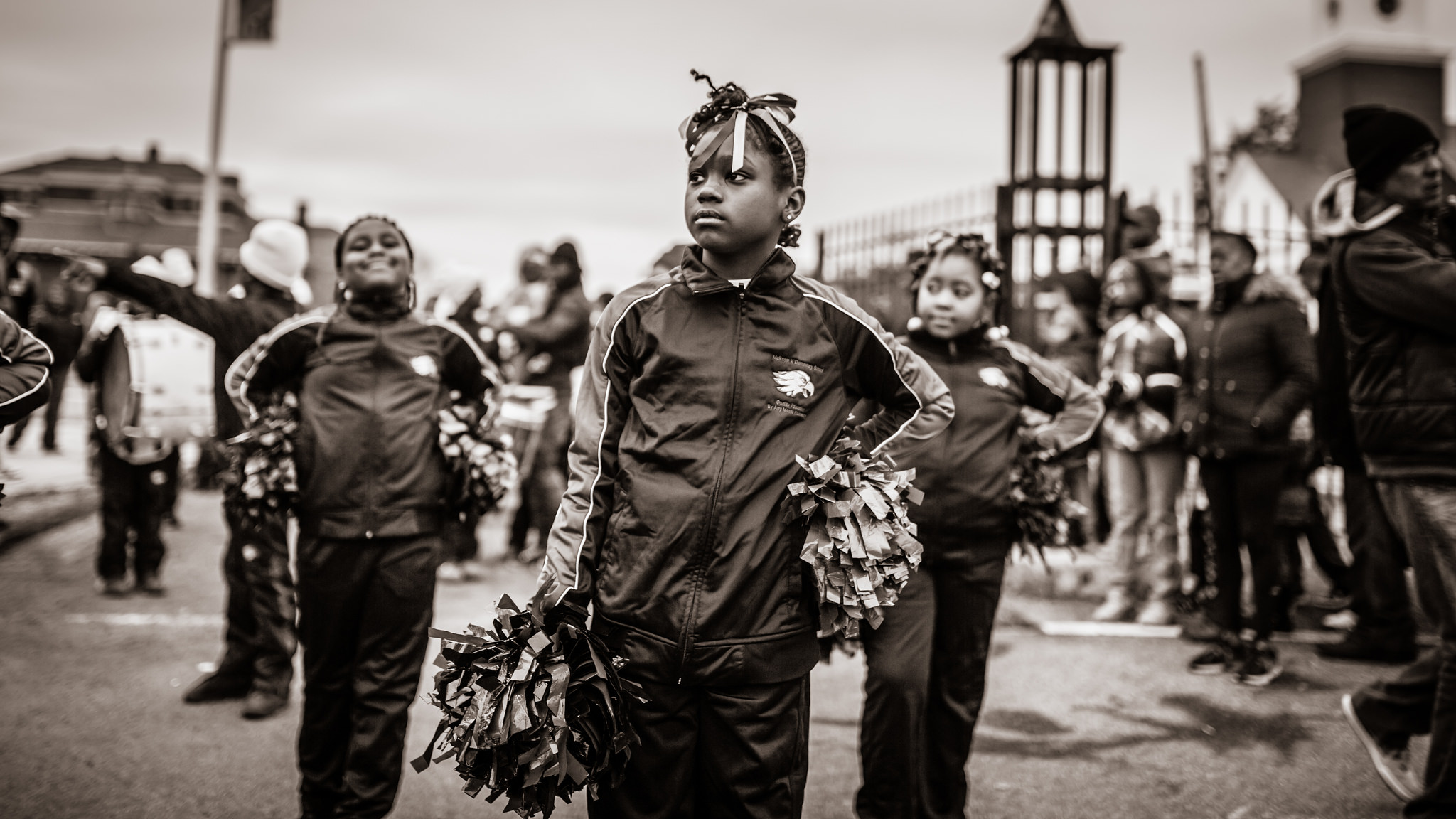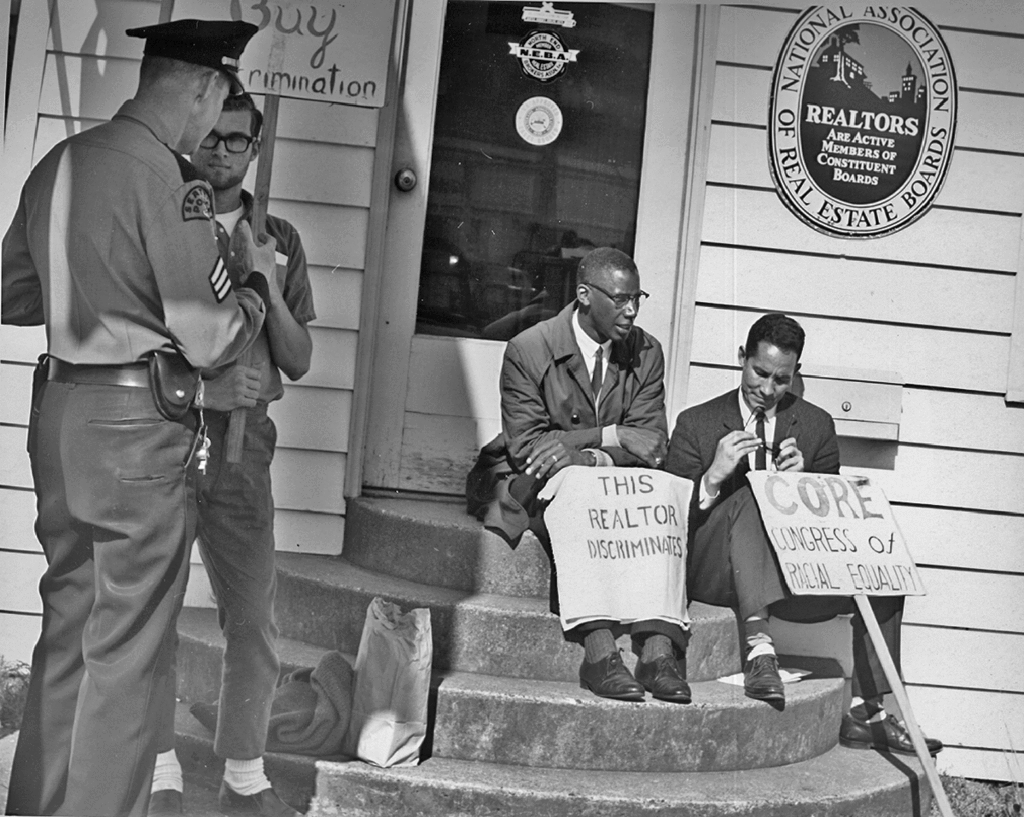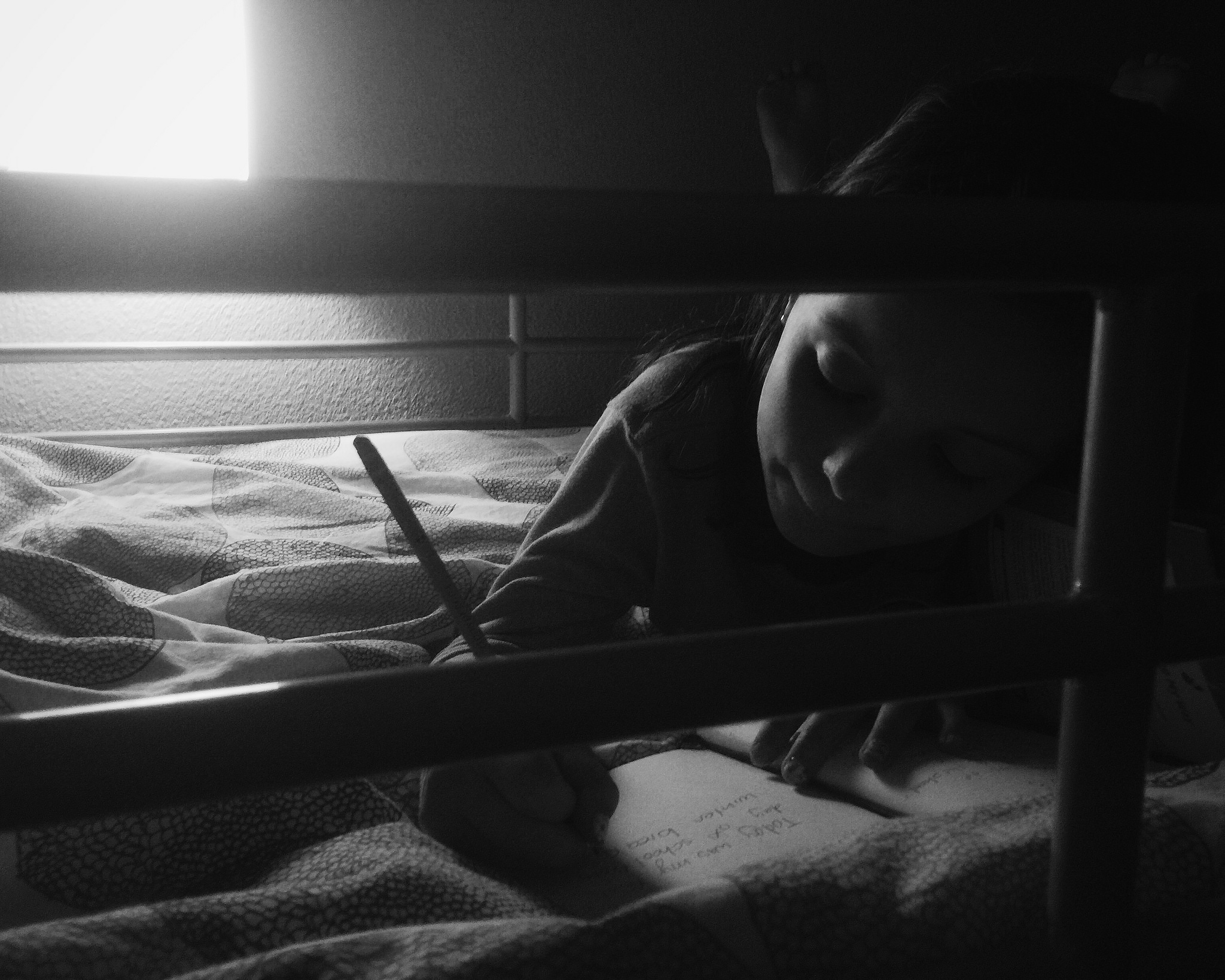Black Is a Country
Some of the most important dialogues we engage in as artists are the ones we have with those we love. In this piece, developed through Penumbra Theatre's My America project, Wendy Thompson Taiwo addresses her daughter in a tender dialogue on the challenge of engaging with whiteness as someone with black identity in America.

introductionSome of the most important dialogues we engage in as artists are the ones we have with those we love. These conversations can be especially difficult when the subject is the challenge of engaging with whiteness as someone with black identity in America. In this piece, titled “Black Is a Country,” Wendy Thompson Taiwo addresses her daughter in a tender dialogue of this nature.
Earlier this year, I had the awesome opportunity to work as a facilitator, alongside Lisa Marie Brimmer, David Melendez, and Sarah Myers, with an incredible group of writers and performers through Penumbra Theatre’s My America project. The experience of watching writing by this group of writers evolve and their relationships with one another deepen over the course of project was a moving one. I am so excited to share an example of the brave work with you.
Erin Sharkey, Free Black Dirt
For Atinuke
Daughter,
Although you are only seven, there are things about this life that you will need to know and it’s best that I be the one to tell you. One of the most important things you will need to know, that you will need to remember, is who you are and what it means to be black in America, to be black in America in this moment.
According to statistics, we can determine the length, value, and quality of black life in relation to the rest of the nation. According to statistics, the average black household would need 228 years to accumulate as much wealth as the average white household, black infant death is two times higher than that of whites, and black folks are incarcerated at more than 5 times the rate of whites despite us making up less than 13% of the nation. According to statistics, one might begin to believe that we black people are averse to work, no good with money, careless with our health, and bent on our own destruction. Falsehoods that white folks use to both chastise us and convince us that we can escape social death if only we cut down on our Starbucks and lottery spending, went to our appointments on time, ate healthier organic meals, and drove less suspiciously within the speed limit. If we did all that, they assure us, we’d be better, worthier people. Black and human.
But they won’t tell you that their rainy day funds were built on our perpetual underpayment or that their job security means our unemployment. They won’t tell you that the protection of their children requires our constant surveillance and their comfort requires our containment. This is to say we have been socialized. Has your teacher taught you that word yet? Socialized: when a society decides it needs a social group to be a certain way—dominant, easily controlled, a distraction, disposable—it makes them that way. We as black folks have been socialized to accept the foreclosure of our humanity and in the process do asinine, self-defeating, harmful things. Like rushing to collect a white woman’s tears in public knowing full well their potential for getting black folks hanged, sentenced, or fired. Or letting debt get the upper hand over history and watching the sale of your great-grandparents’ house, the one they first bought when they moved west from Louisiana, right up from under your great-grandmother’s dead body. Or pardoning the people whose distress calls send so many of our people to the morgue.
At once, these things tell us that we are both lucky to be alive and that there is nowhere safe in this nation for me to raise you and for you to be a black child.

Daughter,
By now, I know that safety belongs to white people but that doesn’t mean I don’t also wish for you and your brother to be safe. And by safe, I mean a place where you will not be robbed of your individuality and wrapped around white people’s assumptions, punished for white people’s fears. By safe, I mean a place where you can wear your hair—each strand kinetic, an orb of blackness suspended around your head, your crown of glory—without messy, uninvited hands going through it like a tactile exhibit or a piece of public art. By safe, I mean a place where I don’t have to tell you that another black person was killed today by the police—yes, like that officer who was invited to talk to your school about public safety.
Since its inception, this country has been a black horror story where we black people play both the one black character who we all know will be the first to die and the audience that shouts at the soon-to-be-dead character. As black people, our national anthem is: “Just leave, just leave! Don’t save nobody, don’t go back and rescue that white girl, they gone kill you. Just leave!” We are a people written and ruined by trauma. We are a people requiring an apology and awaiting reimbursement. We are a people struggling to throw off the chains of slavery while being thousands of dollars and years and single-family homes and good neighborhoods and secure jobs and lifetimes and futures in debt.
When white broadcast journalists and public radio hosts say there are two Americas, believe them.
Black is a country.
Black is a country.
Black is our country.
As a parent, I, like many other parents, carry within me a deep sense of responsibility, of duty, to teach and love and protect my children. To share my own appreciation of delicious stories and black music and world adventure and Asian food. To keep little fingers away from electrical outlets. To lock the Comet away from curious tongues. To shape my children’s sense of language, self, and belonging in the world. But unlike white parents who can shut out the dark, who have tools (weapons?) to banish convenient and distant monsters, and the luxury to protect their children from harm—both imaginary and malignant—I have to cause my children harm in preparation for the violence those same white parents and their white children will inflict upon them. For it is white people who imagine me and my children as their monsters, and our blackness that they require to function as an indicator of social death that cannot be moved unless we want to dismantle the order of the entire universe.
And so I have had to be preemptive with my daughter, poisoning the gentleness of bedtime stories with abrupt details of what having a black body can get you (killed).
What happened?
They killed him and left his body in the street.
Why?
He turned and ran.
He wouldn’t get out of the car.
Someone thought he had a gun.
He was black.
After awhile the stories bleed together but the thing that doesn’t change is the color of the bodies. On car rides, my daughter has gotten used to the frantic chord of my voice as I tell her how white people will likely perceive her and how white people’s perceptions, reinforced by the deadly force of the police, can never shape the interiority of our world, the clay and warm earth of our affection, the textured feel of our humor, the hollow wet rot of our disappointed anger. I have even given her that word to hold—you know the one. She has had it now for some time, balanced in the palm of her hand like a small stone. Occasionally she rolls it around, inspecting its shape and color. They will use it. I tell her. Even if it never leaves their lips.
I am aware that what I am doing is eroding the sweet outer baby skin of innocence. Peeling it back, layer by layer and letting it bleed a little underneath knowing it will harden and callus. Scar. But this is what it feels like to prepare one’s child for a world in which they will always be unprotected. This is what “innocence is for white people” looks like. And if there is one thing worse than being black in America, it is being an unprepared black parent in America. Had I done nothing, how soon would it have been before they taught my daughter that she had no history? That her actions, identical to that of her white peers, were a problem? How soon would it have been before they gave her that word, pelting it into her back, like a bullet, unconcerned with her talent, potential, or dreams?
But they tell me that at least my daughter would have had her innocence.

Night.
The most innocent time of the day.
A time when we’re supposed to let go of our anger.
Before my daughter goes to bed we lie together and read books about life beneath the ocean, the surface of planets, the wishes and fears of talking animals, moving through imagined worlds where our bodies aren’t targets or weapons but warm natural things. Sometimes we watch videos of astronauts giving tours of international space stations and marvel at how they brush their teeth and sleep in zero gravity.
This is the sovereignty of quiet, before sleep. A time when no one is suspiciously watching us shop in the grocery store aisle, no one is interrupting us and stealing our words, dismissing our pain. We are able to drink a cup of milk and undress and brush teeth and kiss and complain of the cold without thinking constantly, incessantly about what it means to be black in America, to think about how complicated and terrible and beautiful and fragile it really is. We are able to simply concern ourselves with the immediate effort of dreaming. No long labor of explaining to others how we remain on the outside of freedom, no reminder of how lucky we are to be alive in a nation where there is nowhere safe. Just a house gradually filled with the sound of breathing, the slow rise and collapse of the chest, our dreams unfurling all around us, wild, rich, and infinite
This article was commissioned and developed as part of a series by guest editors Free Black Dirt.